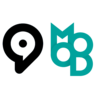TL;DR – Get top tips and advice from industry experts to kickstart your Python development journey. Which is perfect for beginner or new python developers.
I’m working in IT Industry for the last 5+ years for the better part of a decade. I have also spent time investing in creating a better coding platform BeingCoders (old version, 2015–2017) where developers can get their solutions and resources for respective problems easily including technologies like Python, Java, Angular, Machine learning, and AI.
Now BeingCoders is again Live on Medium for you. You can follow the publication. Feel free to write with us.
Meanwhile these many years I found a number of common patterns and pitfalls in my peers that might prevent them from taking their skills to the next level. I have attempted to distill some of these lessons here so that a wider audience can get benefits by spotting these out. Optimistically, start your own journey to learn and develop yourself as Python programmers.
I would like to share the best tips with you,
- Compare yourself with your previous self
- Shed light on WHY you want to learn Python
- Self-Directed Education Benefits
So let’s explore the best tips from my IT Industry experience!
Cover Image Credits: Photo by Walling on Unsplash
1. Compare yourself with your previous self
 Photo by Dietmar Becker on Unsplash
Photo by Dietmar Becker on Unsplash
It sounds trite but avoids the temptation to compare yourself to others, and instead, compare yourself to your previous self. In current IT industries, there are time trial races where you race a course and then race against your previous best time in the form of a ghost racer. You should be aiming at ignoring how well the other racers on the road are doing and instead obsessively and exclusively focus on “beating your race ghost”. This is similarly applicable for learning Python.
Not comparing yourself to others is difficult, especially when you find yourself in a classroom setting with other students who may possess a much more extensive background in programming than yourself. This can be disheartening and frustrating, but it’s important to remember that everyone starts off somewhere. Every Python developer, even myself, started with almost no knowledge or experience.
This, of course, applies not just to the pursuit of programming but also the pursuit of learning just about anything. For my own embarrassing anecdotal experience, when I initially picked up the guitar, I was not aware that one had to press down their fingers on the frets to illicit a sound from the instrument. Furthermore, I hadn’t even considered the possibility of doing both down and upstrokes with my picking hand. Once these silly oversights were addressed through kind mentors and teachers, I was able to make much more progress on my guitar playing.
It’s important that when you begin your Python journey, you do not let what will inevitably be retrospectively humorous oversights deter your progress and prevent you from improving your craft. You will make mistakes, but these mistakes have nothing to do with others. They are your unique learning opportunities, and down the line, you can “beat your race ghost” with advanced Python skills you learn from practice and error.
2. Shed light on WHY you want to learn Python
You must be clear regarding why do you want to be a Python programmer? You may have the following questions coming to your mind.
Are Python developers getting more Money than Java or Ruby developers?
I want to learn python, can someone teach me?
Will Python have more scopes to learn with real-world things?
While I commend the enthusiasm, my follow-up question is almost always, Python, like any programming language, is a tool. You generally don’t see people walking into the hardware store saying:
I want to learn the hammer. Please teach me!
Generally, one learns a tool — it means to end up with building something. The outcome is the goal. Learning Python is no different. It is also much easier to stay motivated and consistent if the reason you’re learning how to use a tool gets you closer to building whatever you want to use the tool to build something.
Practicing different hammer swings and hammer techniques will only be so interesting for so long if you have nothing to directly apply the swings to. In the same way, working on programming drills and practice problems will only be so helpful for a brief period of time before you may ask yourself what value learning this skill is adding to your life.
You ideally want to adopt the Python programming language into your arsenal to solve a problem. Yes, Python can solve many problems. It’s a versatile language that can be used for all kinds of programming needs, everything from web development to gaming to machine learning. Understanding your end goal will help you learn Python in a more focused, project-oriented way.
So, do you want to use Python as a tool to build websites? Perhaps looking into the Django framework would serve you well. Do you want to leverage the tools in the Python community for exploring a question in your research area?
Perhaps, searching for existing projects on Github will guide your focus to projects that are solving problems that you find interesting and engaging.
These are some of the questions that you may want to ask yourself to clarify your goals and outcome objectives.
3. Self-Directed Education Benefits
 Photo by Jaredd Craig on Unsplash
Photo by Jaredd Craig on Unsplash
We live in a time where access to the internet is abundant and cost-effective. There has never been a larger supply of online learning resources for self-motivated learners to benefit from. Python is also one of the most popular programming languages, and as a result, there is no shortage of resource material for learning the skills necessary to become proficient in Python.
The only limiting factor here is your own motivation and discipline to sit down and spend the time to engage in the material. So, Yeah, take advantage of online, self-directed learning, but be sure to do so in an organized and consistent way. You won’t learn Python passively; you have to actively engage and structure your learning. Believe in your teaching skills!
Learning any skill takes consistent time and energy. It is far better to spend 30 minutes to an hour each day consistently over the course of several months as opposed to a handful of sporadic and heroic all-nighter binge sessions. Doing those every now and again can have some benefit, but without the force of consistency, this is largely a useless endeavor.
To make an analogy, a farmer goes out to water the crops and feed their animals each day. If the farmer does not do this consistently, the crops and animals do not thrive and he is by all definitions a poor farmer. The farmer simply can’t ignore their farm for the majority of the week only to make up for the neglect by spending 8 hours in one day watering the crops. In order to cultivate the garden of your skills, it is imperative that you approach your discipline with the same consistency and tenacity as the farmer to ensure a bountiful yield.
Conclusion
This list of advice is not extensive, but it does seem to characterize many of the situations in real-life Python programming goals.
If you are considering delving into the Python programming language, if you feel like you’re plateauing and want to take your skills to the next level, or if you need help with a specific Python programming task or concept, I encourage you to write a comment below or reach out to me directly.
I obtain an immense amount of satisfaction from helping others attain their goals and reach their potential through technology. Even if you wish to reach out and say “Hello”, I sincerely appreciate all of the wonderful correspondence I receive each day from readers. You all enrich my life, and I hope I am able to do the same for you all as well.
If you find joy and value in what I do, please consider supporting my work with a donation — however much you can afford, it means and helps more than you can imagine.
You can give tips too using Buy me a coffee.
Discover more from 9Mood
Subscribe to get the latest posts sent to your email.


























0 Comments